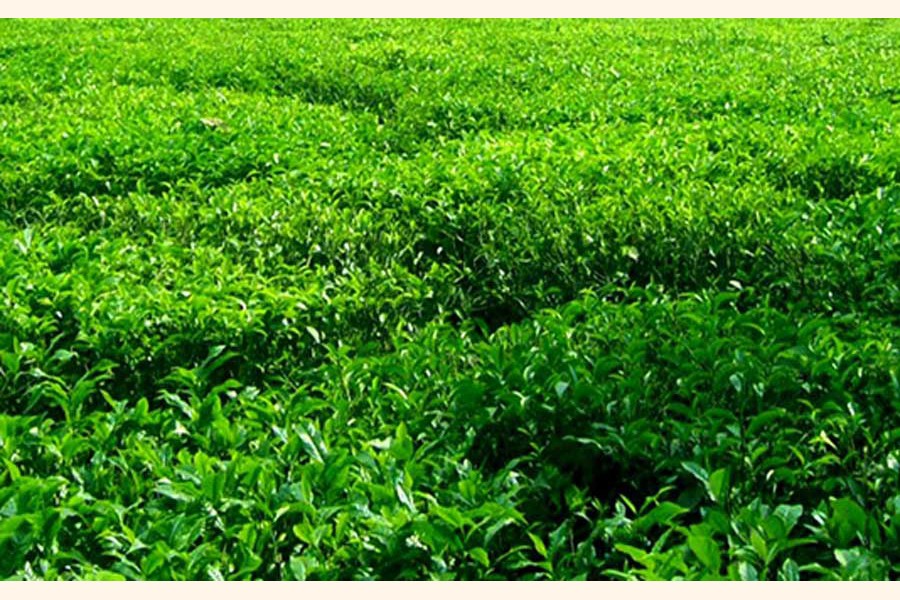RANGPUR, Feb 11 (BSS): The expanding small-scale and small-holding tea gardening on plain land has become a boon for farmers to change their fortune in five sub-Himalayan northern districts in last one decade.
Officials at the Panchagarh regional office of Bangladesh Tea Board (BTB) said farmers are showing more interest in highly profitable tea farming following massive motivational activities being conducted toward the direction.
With continuous expansion of tea cultivation, made-tea production is increasing every year in the 'Karotoa Valley' ecological zone comprising of Panchagarh, Thakurgaon, Dinajpur, Nilphamari and Lalmonirhat districts.
"A BTB team conducted feasibility study in Panchagarh and Thakurgaon in 1999 and found 16,000 hectares of land suitable for tea cultivation," said Senior Scientific Officer at Bangladesh Tea Research Institute Dr. Mohammad Shameem Al Mamun.
Dr. Shameem, also the Project Director of Northern Bangladesh Project of BTB at its Regional Office in Panchagarh, said Tentulia Tea Company Limited first started farming tea on plain lands on commercial basis in Tentulia of Panchagarh in 2000.
Observing better results and quality of produced tea in Tentulia, some other companies and enthusiastic local farmers started commercial-basis tea farming there since 2005.
"Since then, small-scale and small-holding tea farming continues increasing every year in the valley changing fortunes of thousands of small, marginal and bigger farmers," Dr. Shameem said.
To further expand tea farming, the BTB started implementing the 'Expansion of Small Holding Tea Cultivation in Northern Bangladesh Project' since 2015 at Taka 49.7 million to expand tea farming by more than 500 hectares of land within 2021 in the valley.
"As a result, farmers cultivated tea on 8,681 acres of land in 2019 against 4,557 acres in 2016 and 5,622 acres in 2017 and 7,645 acres in 2018," Dr. Shamim said, hoping that the cash crop will be cultivated on over 9,000 acres of land this year in the valley.
The tea processing factories produced a record quantity of 9.6 million kg made-tea in 2019 against 8.46 million kg in 2018 and 5.44 million kg 'made- tea' in 2017 against only o.16 million kg in 2005 when commercial basis cultivation began in the valley.
Eighteen companies operating in Panchagarh and Thakurgaon districts are processing green tea leaves after producing those in their gardens and purchasing from small-holders to produce 'made-tea' for selling at Chittagong Auction Market.
Talking to the news agency, tea growers Matiar Rahman, Sirajul Islam of village Sonapatila in Tentulia, Kazi Anisur Rahman of Tentulia and Anwar Sadat Samrat of Panchagarh said they are now cultivating tea on their 50 to 60 acres of land.
President of Bangladesh Small Tea Garden Owners' Association Amirul Haque Khokan said tea cultivation on `small-holder gardening-basis' has become a
profitable venture to change the fortune of farmers and improve the living standard of farm-labourers.
With expansion of tea cultivation, some 20,000 poor farm-labourers, including 11,000 women, have changed fortune by plucking green tea-leaves and other agri-activities in tea gardens in the last 11 years.
"The female farm-labourers are earning Taka 500 to 600 as daily wages by plucking green tea-leaves to lead a better life and educate their children now in the valley," Haque added.


